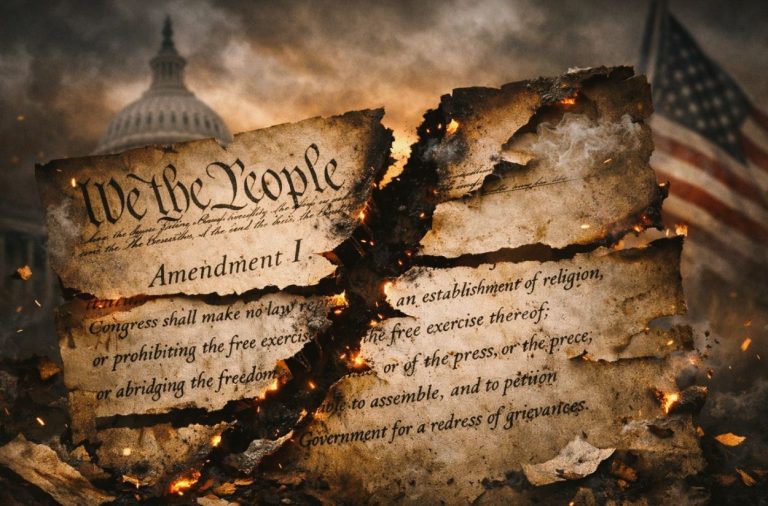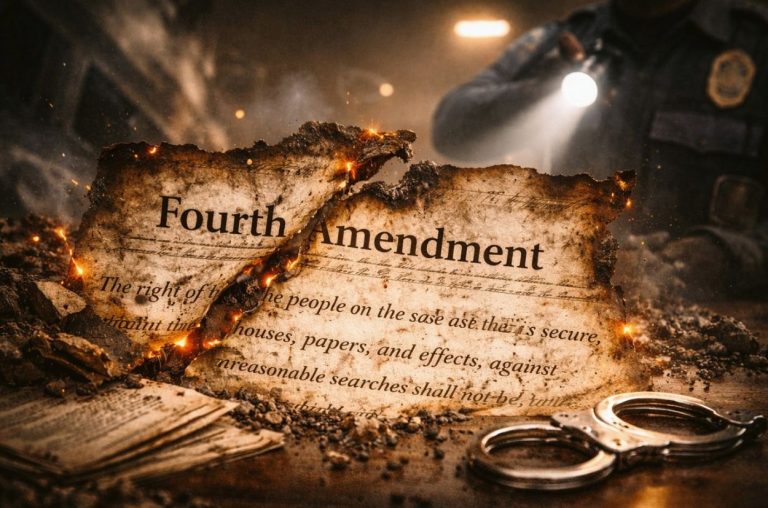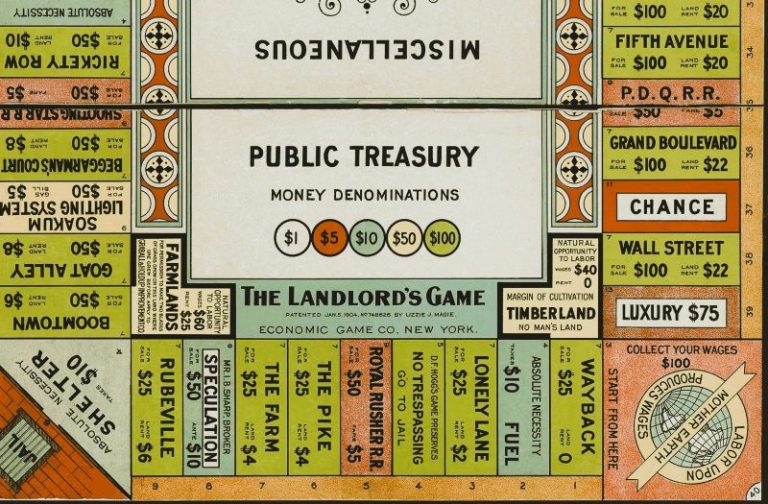

Millions face a future where one’s thoughts, not just one’s acts, may determine the ability to live and build a life in the United States.

By Matthew A. McIntosh
Public Historian
Brewminate
A New Borderline for Ideas
The United States has always treated its borders as more than lines on a map. They are thresholds where law, identity, and ideology converge. With the new U.S. Citizenship and Immigration Services (USCIS) directive to screen immigrants for “anti-American” or extremist beliefs, that convergence has sharpened into something more fraught. H-1B visa holders, green card applicants, and others will now find their political views scrutinized in ways that reach beyond background checks or criminal records. What once might have been the private domain of conscience may now carry the weight of a federal decision.
The language of the policy is deliberately broad. Officials are tasked with identifying individuals who harbor views deemed hostile to the United States or inconsistent with its values. Yet “anti-American” is not defined with precision, leaving ample space for interpretation. In practice, such vagueness invites arbitrariness and the possibility that dissent itself could be mistaken for disloyalty.
The Constitutional Question
The First Amendment does not stop at the water’s edge. While non-citizens do not enjoy all the same constitutional guarantees as citizens, the Supreme Court has long recognized certain protections for those within U.S. borders. Scholars note worrying parallels to Cold War–era loyalty tests, when immigrants were pressed to declare they had no communist affiliations, measures later rolled back as fundamentally incompatible with democratic principles. Reintroducing such ideological scrutiny risks reopening a chapter many believed had closed.
Historical Echoes of Loyalty Tests
America has long oscillated between openness and suspicion. In the early twentieth century, anarchists were explicitly barred from entry purely on political identity. During the McCarthy years, the State Department routinely excluded individuals with connections to leftist movements. Fast forward, the current “anti-American” policy adheres to that lineage, suggesting that fear of ideas remains as potent as fear of actions. For those applying for H-1B visas or green cards, the consequences are deeply personal: a single online post or affiliation could now prompt lengthy delays or outright denial.
Precedents in Recent Memory
This is not the first time ideology has crept into immigration vetting. In 2017, what became known as the “Muslim ban” also introduced requirements to disclose five years of social media contacts, phone numbers, and email addresses. Critics warned that satire, dissent, or political commentary could be misconstrued as disqualification. The Brennan Center for Justice later documented thousands of flagged applications, many delayed indefinitely, separating families and careers from their outcomes.
Post-9/11 frameworks also codified scrutiny of political and religious affiliations, especially for Muslim and Arab applicants, through special registration programs. These policies did not advance national security, and instead cast entire communities under suspicion.
The current USCIS directive fits within this pattern of treating ideology as a potential threat. What sets it apart is the blunt language of “anti-American,” a phrase so expansive that it risks turning ordinary dissent into a disqualifying condition.
International Comparisons
Viewed globally, the U.S. shift toward ideological screening is neither novel nor inevitable.
In China, foreign journalists and scholars are frequently denied entry for views deemed critical of the Communist Party. Social media is monitored; dissent equals disqualification.
Russia similarly excludes critics of its government or positions on Ukraine, with ideological non-conformity treated as grounds for exclusion.
By contrast, the European Union focuses on violent or extremist affiliations, not opinion. The European Court of Human Rights has struck down attempts to deny admission based solely on unpopular views. Canada also emphasizes actions over beliefs, limiting vetting to criminal conduct.
The United States, through language like “anti-American,” weighs far more ambiguously, borrowing from autocratic models but shrouded in democratic rhetoric. That tension is inherently combustible.
Who Is Affected: The Numbers
In 2023, USCIS approved just over 386,000 H-1B petitions, mostly from the tech and engineering sectors. Around 1 million green cards were granted, across family and employment categories. Asylum seekers numbered over 945,000 in fiscal year 2023. And universities enrolled over 1 million international students, with India and China as the largest contributors. All are now subject to subjective ideological scrutiny, with millions of livelihoods and futures in play.
Voices in Law and Advocacy
Critics across law, advocacy, and academia have warned that the vagueness of “anti-American” opens the door to politicized enforcement.
“This kind of vetting could open the door to arbitrary exclusions based on protected political expression,” said Omar Jadwat, director of the ACLU’s Immigrants’ Rights Project.
David Bier, associate director of immigration studies at the Cato Institute, cautioned about the policy, writing, “The upshot is that every person applying for benefits as both an immigrant or a US sponsor will feel pressure to limit their speech and political expression for fear of a denial or delay.”
Sociologist Jane Lilly Lopez of Brigham Young University underscored the danger of bias: “They are opening the door for stereotypes and prejudice and implicit bias to take the wheel in these decisions. That’s really worrisome.”
Ruby Robinson, senior managing attorney at the Michigan Immigrant Rights Center, warned: “A lot of this administration’s activities infringe on constitutional rights and do need to be resolved, ultimately, in courts.”
Academic and Institutional Pushback
The academic world has begun to push back. After a wave of deportation efforts targeting pro-Palestinian student activists earlier this year, more than 200 universities (including Harvard, MIT, and Yale) signed a letter condemning ideological vetting as fundamentally incompatible with academic freedom.
The Stanford Daily even filed suit, arguing its staff had been chilled from legitimate reporting by fear of deportation tied to political subjects. The paper contends that student journalists felt intimidated by the possibility of facing deportation for being associated with speaking on political topics, even in a journalistic capacity.
Meanwhile, courtroom battles are already underway. In Boston, U.S. District Judge William Young is presiding over A.A.U.P. v. Rubio, a case that surfaced evidence of federal use of the Canary Mission blacklist to target academics and activists critical of U.S. policy in the Middle East. Such revelations raise the specter of ideological policing under partisan influence.
We may expect prominent immigrant-rights attorneys like Ahilan Arulanantham with UCLA and Cecillia Wang with the ACLU, both veterans of First Amendment and due-process litigation, to spearhead constitutional challenges to the policy. Scholars like Barbara Hines at UT Law School, who has spent decades building clinics such as VECINA, to defend immigrant families, are likewise preparing responses.
Political Climate and Public Opinion
This policy is part of a now-familiar frame, one that reshapes belonging from behavior to belief. Since his return to the White House in 2025, President Trump has portrayed immigration as both a national security threat and a cultural one. Here, ideological conformity becomes a gatekeeping tool.
Public opinion on immigration has shifted away from Trump’s extremist stance. As it stands in a recent Gallup survey, 33% want immigration decreased, and that is down from 55% just a year ago. Of those polled, 79% believe immigration to be a good thing for our country, up from 64% a year ago. Most Americans support vetting for criminal or terror-related concerns. Far fewer support ideological tests. Civil liberties groups warn that what starts with immigrants may eventually trickle into restrictions for citizens too.
Implications for Free Speech
Dissent may now come with a price. Immigrants, and those seeking to become one, may self-censor on online platforms or in academic settings, fearful that critique of U.S. policy or leaders risks denial. Cultural life, particularly on campuses, could be muted. This is no abstraction; human rights groups report increasing delays and denials tied to political activism abroad. Now it is officially codified. The chilling effect could reshape not only individual lives, but public discourse itself.
Looking Ahead
Legal challenges are inevitable. Courts will face the thorny task of reconciling national security claims with the constitutional prohibition on viewpoint discrimination. Non-citizens do have some First Amendment protections, which apply more fully once they are inside the borders.
For now, millions face a future where one’s thoughts, not just one’s acts, may determine the ability to live and build a life in the United States.
The implications reach far beyond immigration and touch upon the essence of democratic identity. A nation should rest not on conformity but on its capacity to live with dissent.
Originally published by Brewminate, 08.25.2025, under the terms of a Creative Commons Attribution-NonCommercial-NoDerivatives 4.0 International license.


